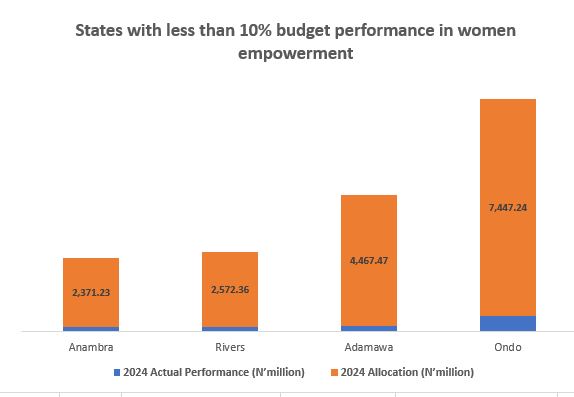An ambitious target set by Oscar Onyema, Chief Executive Officer of the Nigeria Stock Exchange (NSE) in 2012 to achieve US$1 trillion in market capitalisation by 2016, is off target by more than US$970 billion a few weeks to the end of 2016.
Currently, there are about 16 stock exchanges in the world with a market capitalisation in excess of $1trillion and they are mainly in North America, Europe and Asia.
In Africa, the Johannesburg Stock Exchange remains the biggest, with a current market capitalisation slightly above US$1 trillion as at December 2. The next biggest is the Egyptian Exchange with a market capitalisation of about US$56 billion.
Market capitalisation of the Nigerian Stock Exchange, the third biggest in Africa as at 2 December was N8.86 trillion ($29 billion based on average exchange rate of US$305), which is just about three percent of the $1trillion 2016 target.
In 2012, the market capitalisation of the Exchange stood at N8.94 trillion, which was equivalent of $57.83 billion at an average exchange rate of N156 that year. This means that the average market value of the exchange has fallen by more than half in dollar terms since that target was set. The NSE market capitalisation actually hit an all time high of US$90 billion in 2014 before a crash in crude oil prices and the subsequent introduction of capital controls led to a flight of foreign investors.
“The target was set on the premise that the Nigerian economy grew by seven percent in 2012 and the projection was that the economy will continue to grow and all the market will have matured,” said John Chukwu the managing director and founder, Cowry Asset Management Limited.
“Unfortunately, the economy has underperformed and that projection cannot hold. It has to do with the macro-economy,” said Chukwu.
Patrick Ilodianya, Managing Director, SFS Capital Nigeria Limited agrees. Ilodianya told BusinessDay that “Most of the things required to increase market capitalisation are beyond Onyema’s control.”
A dry up in IPOs and new listings since 2012 have ensured that market capitalisation has not increased to the set target over the last five years.
Hopes that reforms in the oil and gas sector would result in the listing of Nigeria’s most valuable company, the Nigeria National Petroleum Company (NNPC) on the exchange, has not materialised. The Petroleum Industry Bill (PIB) which would reform the oil and gas sector and spur listings of the key players in the sector on the exchange has remained stalled in the National Assembly.
The Federal Government also failed to set a timeline for the listing of the power sector companies that emerged from the break up of the Nigeria Electricity Power Authority (NEPA). The eleven companies that emerged from NEPA have remained unlisted, despite the fact that listing them on the exchange could add billions to the market capitalisation and offer more options to investors.
Also waiting to be listed on the exchange, are Nigeria’s telecommunication companies. Non of Nigeria’s four major telecom firms, including MTN, which has about 50 percent market share in the telecommunication sector, Globacom, the next biggest, Airtel or Etisalat, is listed on the NSE, despite having operated in the country for more than a decade now.
Only MTN has so far started discussions with the Securities and Exchange Commission (SEC) with plans to soon list its shares on the NSE. MTN Nigeria’s listing alone is expected to increase the market capitalisation of the exchange by about US$16 billion, sources in the capital market tell BusinessDay. If other telecom firms also decide to come on board, that could bring in additional US$15 billion market value to the stock exchange.
There are many more companies in both the public and private sector that could be listed on the exchange that have not listed. Of the top 100 companies in Nigeria, only about 43% are listed on the exchange.
Olumide Orojimi, Head, Corporate Communications, NSE, says that the exchange has increased its engagement with key government officials in a bid to get more companies to list.
“The NSE has recently hosted top government officials including the Speaker of House of Representatives and House Committee on Capital Market, and most recently the Vice President of the Federal Republic of Nigeria, Yemi Osinbanjo.”
Also Oscar Onyema, the chief executive of the Nigeria Stock Exchange, speaking in Rwanda, at the end of a meeting of the African Securities Exchange’s Association (ASEA) on December 2, said governments needed to make it easier for global funds to gain access to trading, including allowing investors to lend and borrow securities to grow the stock market.
But Bismarck Rewane, managing director and CEO of Financial Derivatives Company Limited says that “the question we should be asking ourselves is what are the advantages of listing and what do we lose by not listing.
“Today it is clear that things are not the way they used to be. When the market becomes transparent and more people are able to raise capital, then we will see more listing,” said Rewane.
Earlier efforts to use legislation to get major Nigerian companies ton list on the exchange have also failed.
A Private Companies Conversion and Listing Bill that was sent to the National Assembly suffered great setback despite that the draft bill which is premised on the provisions of Section 16(2) (a) (b) and (c) of the Constitution of the Federal Republic of Nigeria 1999 passed the second reading on the floor of the House of Representatives as at the last quarter of 2014. But most industry leaders rose against it. This bill would have helped to attract most listings on the NSE.
The proposed tax incentives offered by the Bill are (a) companies that list at least 40 percent of the issued share capital shall be eligible for a tax incentive at a rate up to one-third of its applicable income tax. Also, companies that list 30 percent of their share capital shall be eligible for a tax incentive up to one-fourth of its applicable income tax; and companies that list 20 percent of its share capital shall be eligible to a tax incentive at a rate up to one-eight of its applicable income tax.
Qualifying companies will also be entitled to tax deductible expenses on: “All expenditure incurred by the companies for the purposes of listing on any securities and 60 percent of Securities and Exchange Commission related fees for listing.
But Victor Ogiemwonyi, CEO, Partnership Investment Company Plc said what the companies need to attract them to list is incentives like tax breaks. “A law will be an overkill. Regulated entities can be asked to list for the public good.” Ogiemwonyi, who is the immediate past chairman of the Association of Issuing Houses of Nigeria (AIHN) told BusinessDay.
Also Sewa Wusu, Head of Research and Investment Advisory at SCM Capital Limited advised that the Federal Government should be very careful with laws that would force companies to list, noting that it would be counter to attracting the needed foreign direct Investments (FDI) into the country. Rather, he said through moral suasion, government can advice multinationals to list.
“Another opportunity to get companies listed, particularly during the privatisation process or programme, should have been to enshrine such listing terms or clauses in the initial privatisation arrangement or process. This, in my view, was the mistake made by the handlers of the recent privatisation programme, particulalrly, for the power sector and indeed during the licensing of telecoms companies in the 90s,” Wusu said in his response to BusinessDay questions.
Wusu said such listing terms should have been well stated or articulated as one of the pre-condition for the willing buyers to list their shares on the stock exchange after a specific number of years of operations. “I think going forward, handlers of such programmes should think in this direction. At this point in time, government can only appeal to such companies to list, but cannot automatically compel them,” he said.
Iheanyi Nwachukwu & BALA AUGIE









